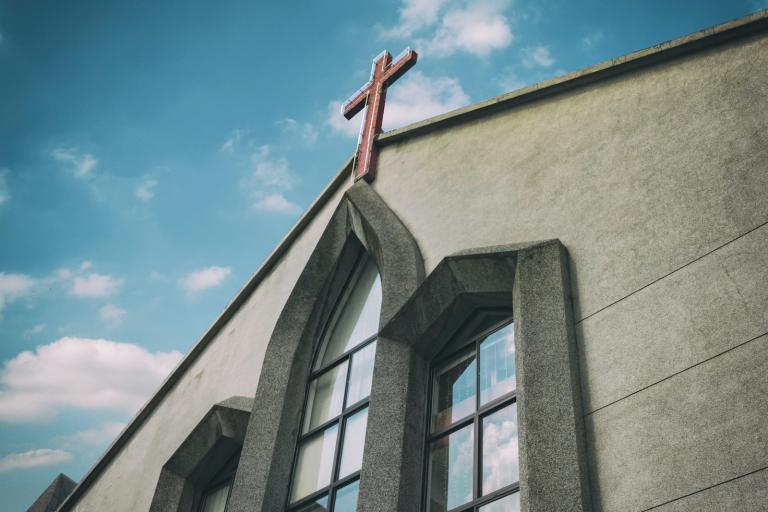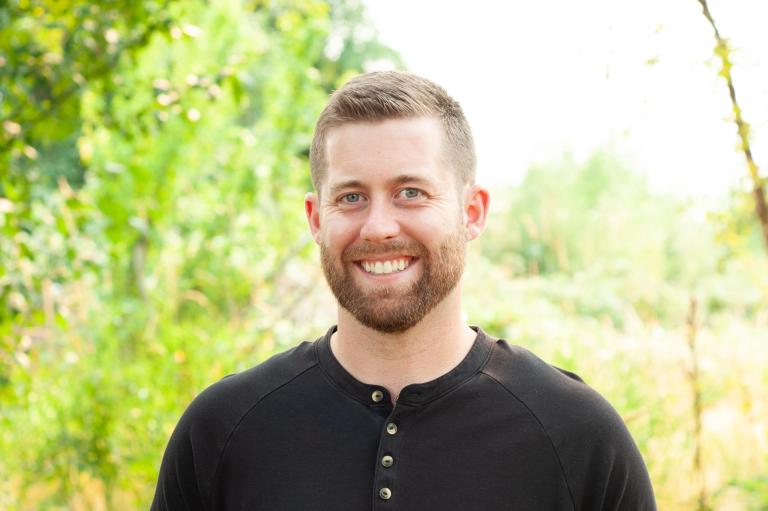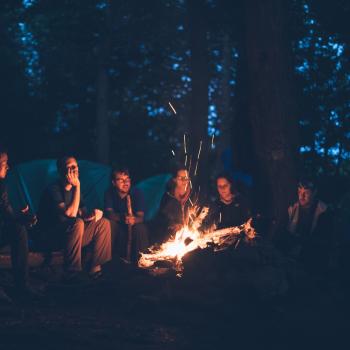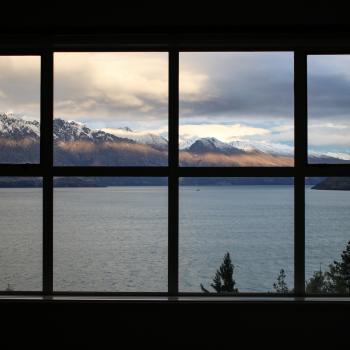
I’m uncomfortable being in church spaces.
And over the past few years of leading workshops, I’ve been asked again and again what I mean when I say that. “Why don’t you attend church?” “Is it because of the priest scandals, because that’s just the Catholic Church.” “What can we do to get young people like you?”
Ugh.
The truth is, most of my workshops are filled with folks from institutional Christianity – active or past members of churches and faith communities. The Church has worked for them, to some extent, and yet they feel an embodied desire for something more. These are folks who are nine toes in or nine toes out of organized religion, but seeking purpose and meaning their churches aren’t supporting them with.
And I find myself in a similar space. If I were to answer the question of “why I don’t go to church” in one sentence it would be this:
“I am suffering from depth deprivation and, from my experience, the institutional church doesn’t help me to alleviate this reality.”
(And the harms caused by the Church, including the scandals, dedication to patriarchy, pervasive homophobia and heteronormativity, ableism, and white supremacy obviously add layers upon layers to this.)
I think many of us feel this way – but are afraid of what accepting the reality of this embodied feeling might mean.
I first heard the term “depth deprivation” from one of my teachers at the Living School for Action and Contemplation, James Finley. (The Living School is one of the living legacies of Richard Rohr‘s teachings.) James teaches that we often “skim over the surfaces of the depths of our own lives.” In other words, we rarely touch upon that deep Reality hidden within each of us: our True Self, soul, inherent dignity (use whatever language that resonates with you).
This rings true for me.
The depth deprivation I feel is embodied, deeply sorrow-filled, and leads me to wonder if there is a community anywhere to find elders and companions who might sink into the depths with me. I recognize I hold tension around this idea; I don’t know where to go for such a community of depth-seekers.
Our Current Community Options
Brian McLaren (another of my teachers at the Living School) writes in Faith After Doubt there are two options currently being provided by the “moderate-progressive church” when it comes to faith communities:
- Churches that have progressive methodology and regressive theology.
- Churches that have progressive theology and regressive methodology.
The churches with progressive methodology and regressive theology are often filled with younger participants, a high-quality band, engaging speakers, and an emphasis on looking good. These churches create a good product.
But it’s just that: a product. When one buys in and purchases it, they eventually find the theology, often hidden just under the surface, is just as regressive as in many conservative spaces: patriarchal language, dominating images of the Divine, and justice as primarily retributive. This is a consumer space, not one in which spiritual depth is made the top priority.
The second option seems to include churches with the inverse: more overt and progressive theology (or an attempt at it) delivered in an old school way – and not the good kind of old school.
In my experience, these are the church spaces I’ve largely found myself in.
The language used is more inclusive, the image of the Divine is more compassionate, and the purpose of the church is more centered on restorative justice. And yet, it is being offered and fostered within old wineskins. The theology of this space is clear, but the methodology of engaging it is stuck in the past: committees, unquestioned hierarchical management systems, attractional models from the 1960s. Brian writes that these spaces are “addicted to the institution,” focusing their energy on attempting to save what was, rather than allow their progressive theology to open them to something new and unknown.
The first option is attractive, yet shallow and almost certainly damaging; the second feels more love-filled, but is dying and dry.
And so, I find myself mirroring a truth Brian alluded to in his book: neither work for large sections of my generation. We’d rather walk out our questions in nature than remain in institutions that don’t support our depth-seeking.
On my bad days, I assume I will remain in this liminal space, this space of unknowing, where I exist untethered from a spiritual home and wandering in the wilderness of my depth deprivation. There is much I can do on my own to explore the depths – so I am not hopeless. But I am desiring of something new.
In conversation after conversation, I find people who are seeking something similar to myself. There is a desire that is welling up in folks around the Christian world, searching for communities where they might be companioned in the descent into the depths of their lives. I may never end up in a traditional church structure again, but I have no doubt I will find folks along the way who desire the same transformative and embodied spirituality that I do – and I hope we might organize together.
Here are some resources for you in finding more spiritual depth:
1. New Group Course starting in 3 weeks!
Beginning October 5th, I’ll be leading folks through my core framework for practical, accessible inner work.
Here’s what you get by joining this 6-week course:
-
4 90-minute live sessions of teachings and guided inner work,
-
2 90-minute live practice spaces for community sharing,
-
a collection of practical somatic tools you can integrate into your daily life, and
-
a 40+ page guidebook w/all practices, materials, and journaling prompts all in one place for your ongoing work.
There are just a few more spots available, so sign up soon!
2. Upcoming Conference on Interfaith Contemplative Spirituality
If this article resonates with you, you will find others just like you here.
My friend Keith Kristich is hosting the Contemplative Prayer Summit in just a couple days on September 23rd-24th!
Here are the titles of a couple of the sessions:
- For a Future to be Possible: Lessons in Engaged Contemplation from Thich Nhat Hanh
- Queering Contemplation: Exploring Thomas Merton & Contemplation through a Queer Lens
- The Way of Remembrance: Sufi Practices to Awaken the Heart
- This Sacred Body: The Body’s Essential Role in Contemplative Prayer
I think it’ll be a great event! Check it out here.













